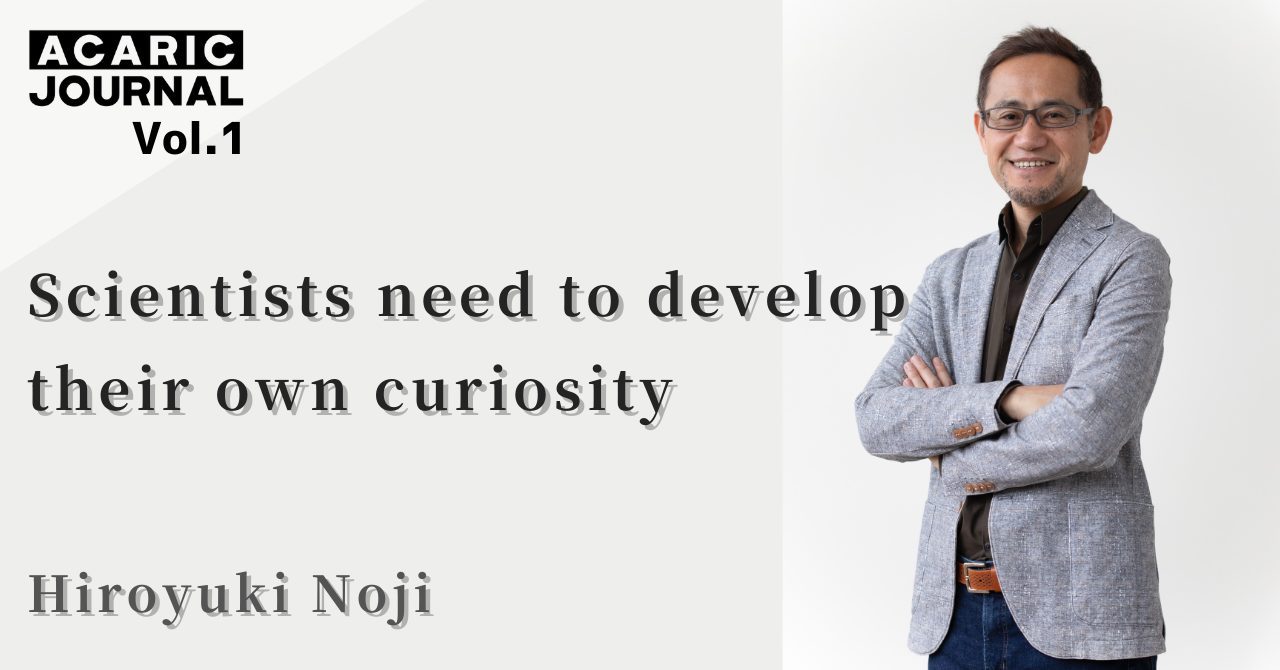Click here for the previous article, “What Scientists Need is to Hone Their Own Curiosity (1)
– Have you seen any changes in the career paths of the graduate students and postdocs around you over the past decade or so?
I haven’t seen any major changes. Of course, in general terms, students tend to become more conservative in their decisions when the economic situation is bad, but I don’t think the essence has changed. There will always be students who are stability-oriented and choose stability, and those who want to choose the thorny path of academia end up choosing the thorny path no matter what the times are like. Even so, I think that most of the members of our laboratory love research. …… Many people want to do research, not only in academia but also in companies. There are companies in the pharmaceutical and chemical fields with which we have joint research relationships, so some of our students go on to work for companies in those fields. However, there are also cases where people go on to work for government agencies and media companies.
There is a mismatch between academia and the corporate world in that the research skills being done at universities are not necessarily versatile in the corporate world, or too advanced to be used. However, if a company needs to introduce a new technology for a new project, I think it would be a very good match. Furthermore, I feel that if you have experience in planning and managing a project, there is a high possibility that you will be able to play an active role in the company afterwards.
– So, management skills are very important for doctoral students and postdocs?
I think that researchers with a degree, especially in engineering, are expected to be more than just a researcher, but also to have the ability to lead an organization as a manager. Since my laboratory belongs to the engineering field, I tell my members, “You cannot manage a project if you can only manage what you have experienced or acquired. You must be able to manage a project including technologies and concepts that you have not experienced yourself.
The first step is to manage your own research topic. A master’s degree is not only about being a player who can do experiments, but you have to aim to become your own manager who can manage how your own research is carried out. In other words, by the time you graduate, you need to be able to carry out your research on your own without asking for instructions from the faculty.
Doctoral students are also expected to plan the project itself and formulate its strategy. At that time, they should be able to experience the basics of managing a group, preferably involving other students and researchers around them.
Postdocs are required to have similar abilities at an even higher level. Assistant professors and lecturers are so-called playing managers. They are required to have the ability to unite members of related research themes and manage the whole thing efficiently. Associate professors require you to form and manage a semi-independent organization and to be independent in terms of research budget. Therefore, the requirements for each member of the laboratory are different. Their abilities as managers tend to flourish when they are given such opportunities. I am quite conscious of that.
– Do you have a final message for students?
I would like to emphasize again that the most important thing is curiosity. If you are a graduate student, make sure you know what you want to do. “If your goal is to succeed, you will not make it big, at least not as a scientist. The research of people who have a core curiosity is interesting. Such people focus on strategies to succeed, and even when they fail, they find new shoots from unexpected discoveries, and eventually achieve something interesting.
Isn’t this the same with companies? Rather than people who only choose the option of not failing, I believe that people who have a desire to achieve something have a stronger ability to involve the people around them and drive the project forward, leading to something interesting even if the initial goal is not achieved.
If you have something you want to do or achieve, I hope you will take care of it.
Translated with www.DeepL.com/Translator (free version) and Acaric Journal Editorial Board
Profile (at the time of the interview)
Dr. Hiroyuki Noji
Born in Hokkaido in 1969, Dr. Noji completed his doctorate at the Graduate School of Science and Engineering, Tokyo Institute of Technology in 1997. D. in Science from the Tokyo Institute of Technology in 1997, a PRESTO researcher at the Japan Science and Technology Corporation in 2000, a professor at the Department of Applied Chemistry, Graduate School of Engineering, the University of Tokyo in 2010, and a program manager at ImPACT, an innovative research and development program from 2015 to 2020. His main research interests include single molecule biophysics, digital bioanalysis, and artificial cell reactors.



